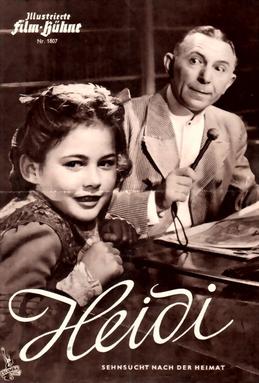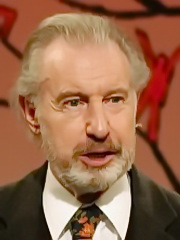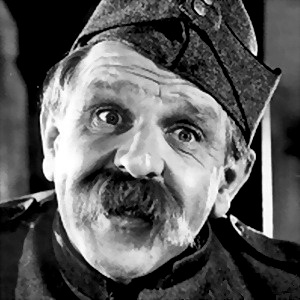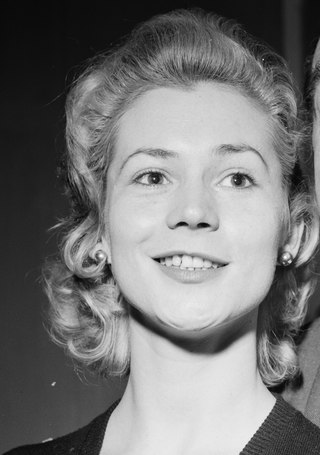Related Research Articles

Alois Carigiet was a Swiss graphic designer, painter and illustrator. He may be known best for six children's picture books set in the Alps, A Bell for Ursli and its sequels, written by Selina Chönz, and three that he wrote himself. In 1966 he received the inaugural Hans Christian Andersen Medal for children's illustrators.

Emmy Hennings was a German poet and performing artist, founder of the Dadaist Cabaret Voltaire with her second husband Hugo Ball.

Zarli Carigiet was a Swiss actor and comedian. He was a member of the satirical Cabaret Cornichon and starred in movies by directors such as Leopold Lindtberg, Franz Schnyder, and Kurt Früh. He was the younger brother of the artist and illustrator Alois Carigiet.

Theater Basel is the municipal theatre of the city of Basel, Switzerland, which is home to the city's opera and ballet companies. The theatre also presents plays and musicals in addition to operas and operettas.
The Cabaret Cornichon was a Swiss cabaret company.

Rudolph Bolo Mäglin, was a Swiss journalist, publicist, writer, poet and cabaretwriter.

Heidi is a 1952 Swiss family drama film directed by Luigi Comencini and starring Elsbeth Sigmund, Heinrich Gretler and Thomas Klameth. It is based on the 1880 novel Heidi by Johanna Spyri. It was followed by a 1955 sequel Heidi and Peter.

Fascht e Familie is a Swiss German language television comedy serial (sitcom) of the 1990s. It was filmed and produced at locations in Switzerland by Schweizer Radio und Fernsehen SRF.

Trudi Roth was a Swiss stage and film actress who starred in Swiss German language cinema and television and stage productions.
Hedy Graf was a Spanish-born Swiss classically trained soprano. She traveled widely throughout Switzerland and Germany. Her concert repertory focused on both Baroque and contemporary music, including premières of oratorios.

Rudolf "Ruedi" Walter, was a Swiss comedian, actor and radio personality usually starring in Swiss German-language cinema and television and stage productions.

César Keiser or Hanspeter Keiser was a Swiss cabarettist, comedian, radio personality, and stage and film actor, usually starring in Swiss German language cinema, television and stage productions.

Alfred Rasser was a Swiss comedian, radio personality, and stage and film actor who starred predominantly in Swiss German-language cinema and television and stage productions, but he was also known for the role of Theophil Läppli, a parody on the Swiss militarism.

Margrit Läubli is a Swiss dancer, stage, television and film actress, comedian, cabarettist and radio personality, starring usually in Swiss German language productions.

Margrit Rainer born as Margrit Rosa Sandmeier was a Swiss comedian, radio personality, and stage and film actress starring usually in Swiss German language cinema and television and stage productions.

Mathilde Danegger was an Austrian stage and movie actress. Sources may also identify her by the pseudonym, Mathilde Leusch; Leusch is apparently a variant of her second husband's surname (Lesch).
Karl Meier was a Swiss actor influential in the European LGBT social movement. He was a member of the socially active Cabaret Cornichon company, and editor for the gay magazine Der Kreis, which he edited under the pen name "Rolf".
Walter Lesch was a Swiss stage and movie producer-director. He was also a writer and, for nearly twenty years after 1933, artistic director of the anti-Nazi Cabaret Cornichon.
The FC Basel 1942–43 season was the fiftieth season since the club's foundation on 15 November 1893. FC Basel played their home games in the Landhof in the district Wettstein in Kleinbasel. Albert Besse was the club's chairman for the fourth consecutive season.

Inge Ginsberg was an Austrian-Swiss author and singer. While in Switzerland during the World War II, she was involved with the Italian resistance movement.
References
- ↑ Muscionico, Daniele; Arifé Aksoy (2010-10-14). "Die widerspenstige Patriotin". Die Weltwoche (41): 56–57. Retrieved 2015-03-03.
- ↑ Sprecher, Thomas (1999-06-18). "Eine aussergewöhnliche Frau" (PDF). Neue Zürcher Zeitung. Retrieved 2015-03-03.
- ↑ Weltwoche 2010-10-14 p. 57
The above contains some information translated from the article in the German Wikipedia at de:Elsie Attenhofer